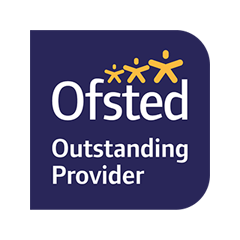Curriculum
The Religious Education curriculum at Ashleigh Primary School has been designed to develop pupils’ understanding of their own beliefs and the beliefs of others. Through an enquiry approach we aim to deliver a curriculum which is accessible to all and will equip pupils with the knowledge, experiences and skills required for adult life, employment and life-long learning in our diverse, modern society. We want Ashleigh pupils to leave our school with the ability to hold balanced and well-informed conversations about a variety of religions and worldviews.
Our religious education curriculum promotes tolerance, compassion, equality and enables pupils to combat prejudice in line with our ethos that we are ‘All different, all equal, all learning’. Religious Education at Ashleigh reflects the aims, value and philosophy of the whole school. It plays an important role, along with other curriculum areas (particularly PSHE, British values and our PATHS programme) in the promotion of the spiritual, moral, social and cultural development of our pupils.
The RE curriculum will be taught in accordance with The Norfolk Agreed Syllabus and will ensure lessons will:
- provoke challenging questions about the ultimate meaning and purpose of life, what is right and wrong, the nature of reality and the being of God develop pupils’ knowledge and understanding of Christianity, other principal religions, other religious beliefs and worldviews that offer answers to such questions
- develop pupils’ knowledge and understanding of Christianity, other principal religions, other religious beliefs and worldviews that offer answers to such questions
- develop pupils’ awareness and understanding of religious beliefs, teachings, practices, forms of expression and the influence of religion on individuals, families, communities and cultures
- encourage pupils to learn from the diversity of religions, religious beliefs and worldviews while affirming their own faith or search for meaning challenge pupils to reflect on, consider, analyse, interpret and evaluate issues of truth, belief, faith and ethics and to communicate their responses
- challenge pupils to reflect on, consider, analyse, interpret and evaluate issues of truth, belief, faith and ethics and to communicate their responses
- encourage pupils to develop their sense of identity and belonging and enable them to flourish individually within their own communities, and as citizens in a plural society and the global community
- help prepare pupils for adult life and employment by enabling them to develop respect and sensitivity to others – in particular those with different faiths and beliefs – and equipping them to combat prejudice and discrimination.













